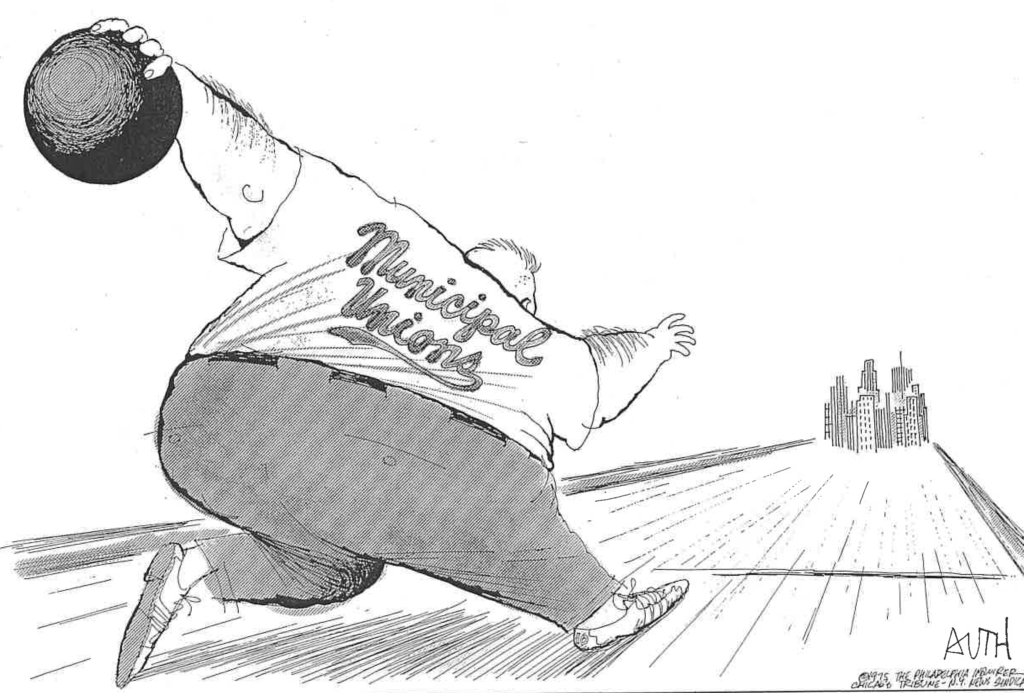Will Team Biden Weaponize Workers’ Pensions?
Big Labor abuse of worker pension and benefit funds as a means of advancing union bosses’ self-aggrandizing policy objectives is a familiar phenomenon.

Early last year, union-label Democrat politicians took a significant step towards destruction of Virginia’s Right to Work law by repealing the Old Dominion’s statutory ban on government-sector monopoly bargaining.
The ban, adopted in 1993 with the National Right to Work Committee’s strong leadership, had protected public servants’ personal freedom and helped keep the state-and-local tax burden in Virginia from spiraling out of control as it has in Big Labor-dominated states like Maryland, New Jersey, and New York.
Its repeal will enable union bosses to reign supreme over public servants and seize new power over taxpayers.
But the impact of monopoly bargaining is only beginning because legalization took effect just four months ago.
Fortunately, Virginia’s statewide elected offices and all 100 seats in the House of Delegates are up for grabs with voters going to the polls this November 2.
And freedom-loving citizens are hopeful the Old Dominion’s cherished Right to Work law can be protected, and its ban on government union monopolies can ultimately be reinstated.
Under monopoly bargaining, union members and nonmembers alike must allow the agents of a single union to speak for them on matters concerning their pay, benefits, and working conditions.
Workers who choose not to join the union and believe they could get a better deal negotiating individually or through another representative are legally barred from even trying.
And state statutes authorizing union monopoly bargaining over state and local public servants are strongly correlated with heavier tax burdens and more debt.
In this context, the contrast between Virginia, which protects the Right to Work and until very recently barred public-sector monopoly bargaining, and nearby Maryland, which has long allowed forced union dues and authorized government union monopolies, is telling.
Recent analyses from two citizens’ groups, the Tax Foundation and the American Legislative Exchange Council, show that Maryland’s total state-and-local tax burden as a share of personal income is 18% higher than Virginia’s, while the Free State’s public pension underfunding liability per capita is 15% higher.
As part of its ongoing program to prevent a complete Big Labor takeover of the Old Dominion, this summer the Committee, which is based in northern Virginia, began contacting legislative candidates, urging them to complete and return a candidate survey.
Two key requests being made of all candidates are opposition to all schemes to weaken Virginia’s Right to Work law and support for reinstating the ban on union monopoly bargaining in government.
Not surprisingly, former Gov. Terry McAuliffe, who is the Democrat nominee for chief executive once again this year, is refusing to return his Right to Work candidate survey.
Committee Vice President Matthew Leen commented: “Terry McAuliffe’s anti-Right to Work stance is no secret.
“In April, he admitted that he now supports repeal of Virginia’s three-quarters-of-a-century-old ban on forced union dues and fees. And he simultaneously touted his support for government-sector union monopoly bargaining.
“Since going on the record as a full-fledged forced-unionism advocate, Mr. McAuliffe has reportedly raised $2.2 million in cash alone from Big Labor PACs. The cash value of the unreported, ‘in-kind’ support Mr. McAuliffe is getting from union bosses is undoubtedly even greater than that.”
Regardless of whether they are openly advocating forced unionism, hiding their stance, or pledging 100% support for Right to Work (as is Mr. McAuliffe’s GOP opponent, Glenn Youngkin), candidates will hear from Committee members this fall, emphasized Mr. Leen.
Over the next two months, the Committee will repeatedly mail tens of thousands of identified Right to Work supporters across the state, urging them again and again to contact fence-sitting and hostile candidates, in a persistent effort to turn them around.
Citizens will simultaneously be mobilized to thank candidates who have pledged full support for Right to Work.
“Thanks to the Committee’s state survey program,” said Mr. Leen, “candidates who are either covertly or overtly backing compulsory unionism will have a clear choice as Election Day approaches. They can pledge to change course and support Right to Work in the future, or face the potential political fallout.”
This article was originally published in our monthly newsletter. You can go here to access the last newsletter post, or go here to access all previous newsletter posts.
To support our cause and help end forced unionism, you can go here to donate.

Big Labor abuse of worker pension and benefit funds as a means of advancing union bosses’ self-aggrandizing policy objectives is a familiar phenomenon.

Leaked CTU Proposals Won’t Do Anything to Improve Schools’ Poor Performance

What impact does handing a union monopoly power to deal with your employer on matters concerning your pay, benefits, and work rules have on your pay?